Organizational Energy Management
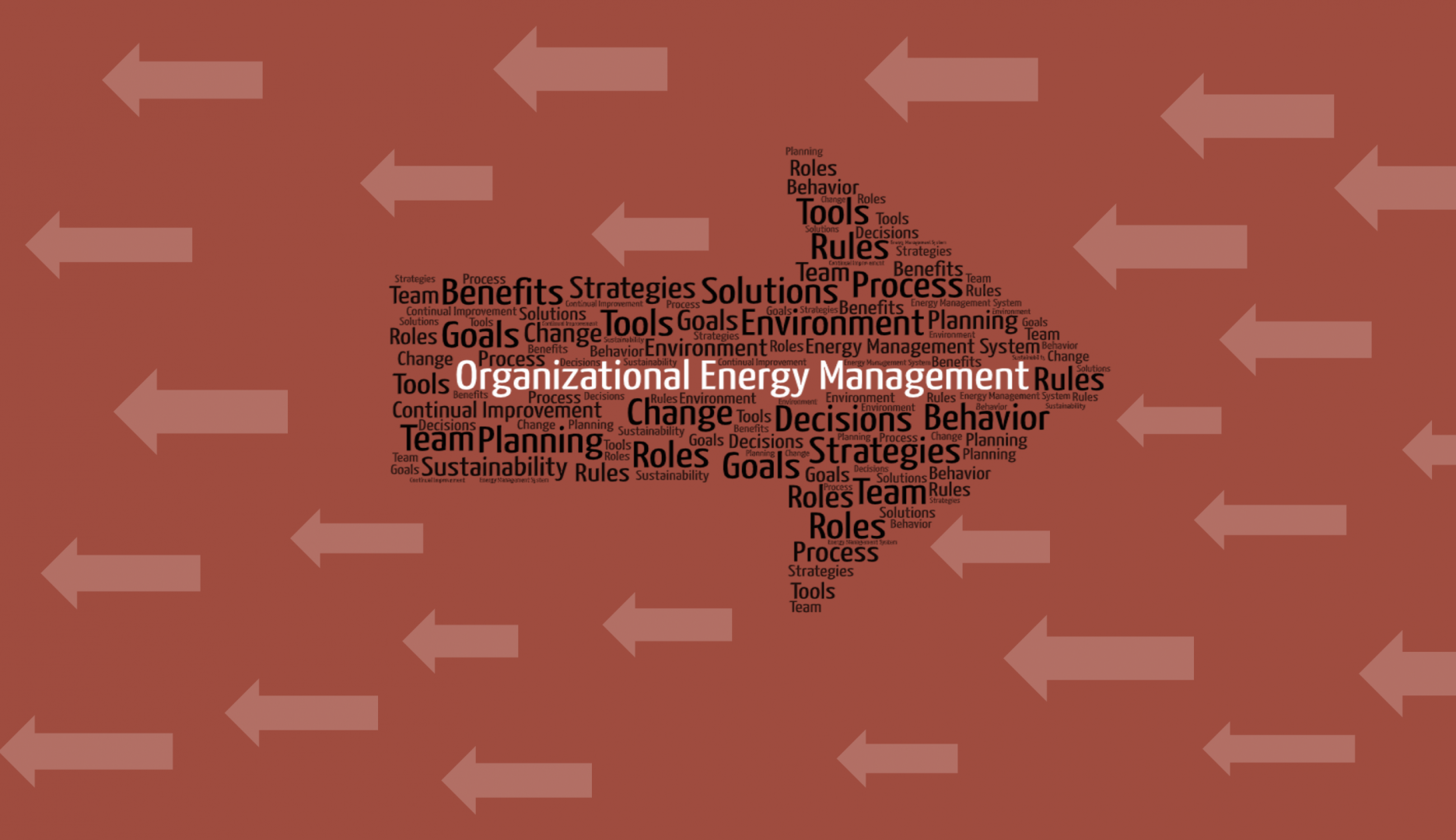
We conduct research where behavioral science meets energy management. Our objective is driving better energy performance and productivity. Our focus is on organizations - the businesses, industries, government and other entities that influence the largest share of energy use. The energy behavior of individuals is complex. Organizations can compound that complexity with often competing roles and rules. We harness policy and insight into organizational behavior to foster cultural change toward a more productive and sustainable future.
We seek to understand:
- How do energy and sustainability figure in the planning, decisions and actions of organizations
- What managerial processes and behavioral preconditions are needed for institutional change
- What aspects of organizational culture are aligned with continual improvement in energy management
- How can systems for energy and environmental improvement be optimized to foster enduring institutional change and sustainability
To answer these questions, the Sustainable Operations (SO) Group works in several project areas:
- 50001 Ready - a DOE-funded program used to assist federal facilities and agencies in establishing energy management systems (EnMSs) and pursuing better energy performance.
- Institutional Change Research - a collection of Berkeley Lab presentations, publications and case studies on effective methods for institutional change, energy management systems and the pursuit of sustainability
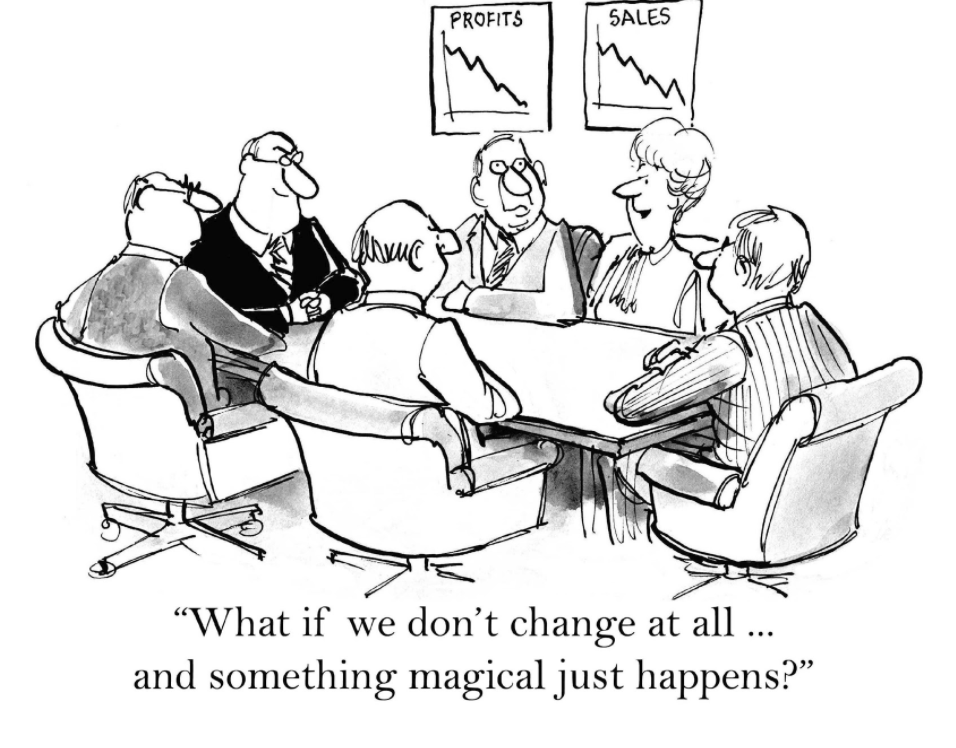
50001 Ready

The U.S. government is the nation's largest consumer of energy. We support the U.S. Department of Energy in helping federal facilities and agencies practice strategic energy management (SEM) and improve energy performance. The 50001 Ready program is based on ISO 50001, an international standard for establishing an energy management system (EnMS). The program relies on behavioral strategies to rally an organization around continual improvement in energy performance. Participating organizations use the 50001 Ready Navigator, a free, online tool, in a self-paced approach to establishing an EnMS for each site or agency. The energy management system in 50001 Ready is built on the Plan-Do-Check-Act (PDCA) model for organizations to continually identify and pursue opportunities for deep, sustained energy and cost savings
Our development and support of 50001 Ready, including training federal agencies, has led to research into remote learning. This effort focuses on optimizing curriculum and delivery for virtual learning. It includes building effective virtual classrooms and training teachers. This research builds on Berkeley Lab's long history with SEM, ISO 50001, and the Certified Practitioner in Energy Management Systems (CPEnMS) training program.
Plan-Do-Check-Act
Plan-Do-Check-Act (PDCA) is a four-stage cycle used to implement continual performance improvement for a diverse range of operational contexts and serves as the conceptual foundation of continual energy performance improvement through ISO 50001 and 50001 Ready.
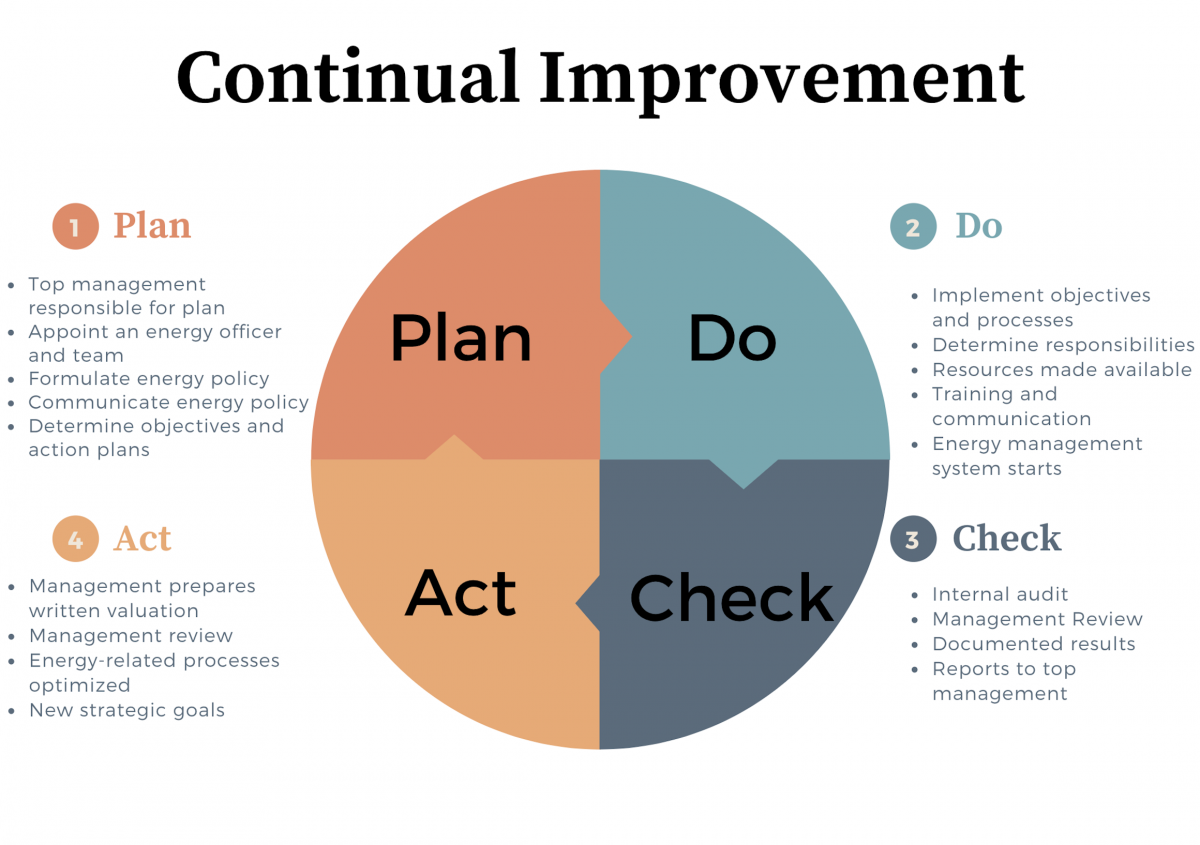
In an energy management context, the PDCA approach involves systematically planning for and acting upon energy savings solutions, assessing the results and then refining or expanding opportunities for better energy performance.
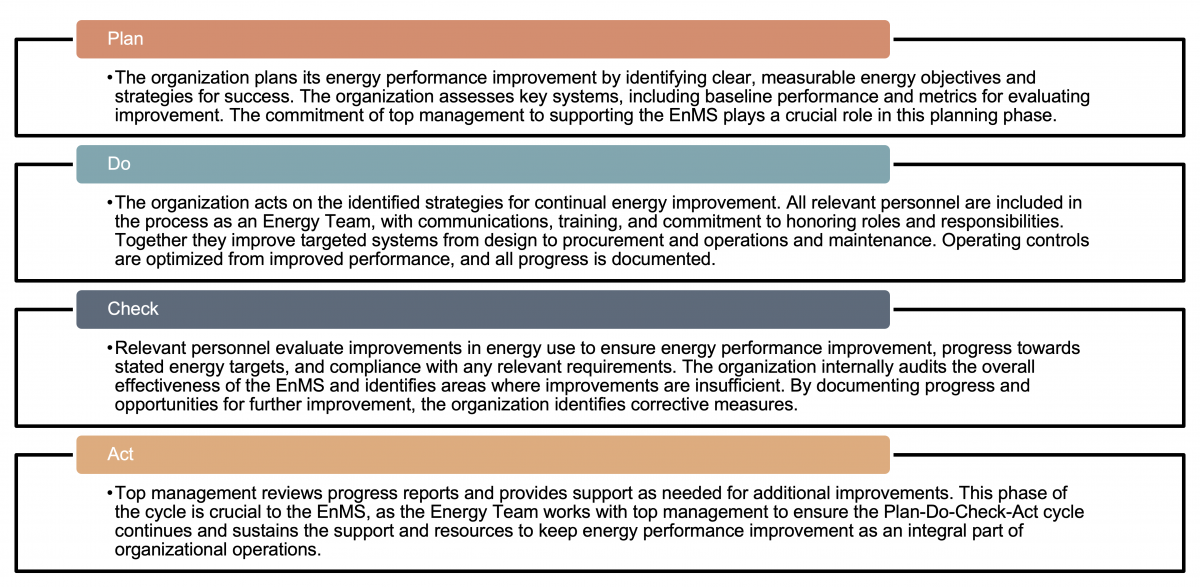
For more information regarding the ISO 50001 standard, visit the Better Buildings website.
Resources
Presentations and Training
Changing Institutional Procurement Behavior to Achieve Energy Savings - Wang, L. & Payne, C. 2018 ACEEE Summer Study on Energy Efficiency in Buildings. We quantify the extent of energy efficient product procurement within the federal government as well as the benefits of purchasing efficient technologies. We also examine the effects of Berkeley Lab’s work on assessing and improving compliance with federal procurement regulations.

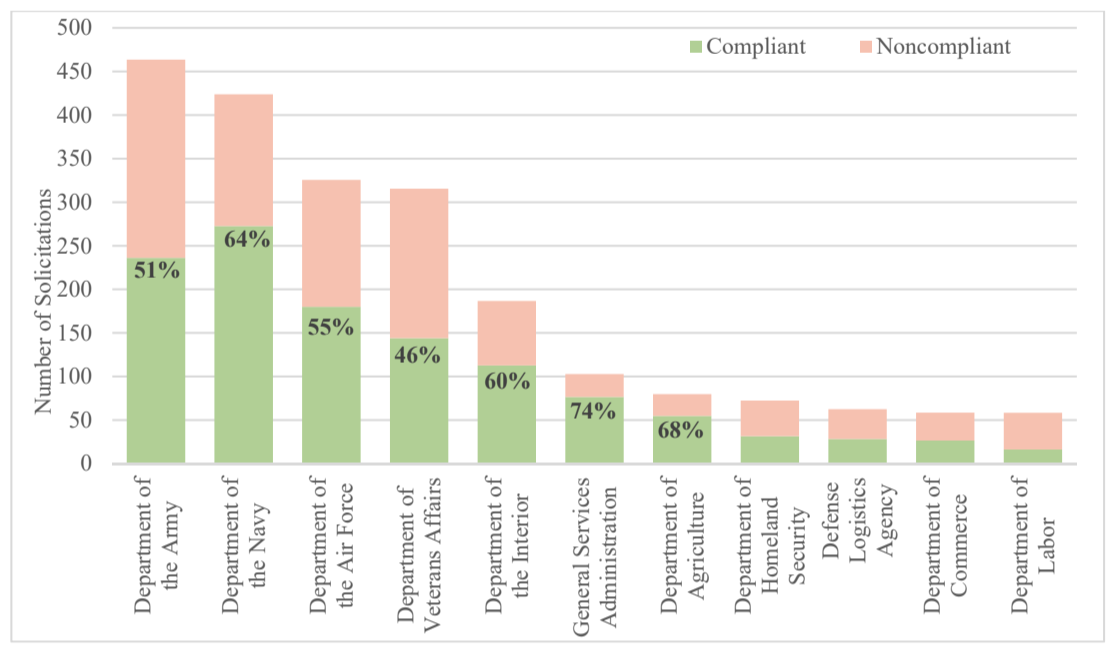
The graphs above illustrate federal compliance with energy efficient product procurement requirements. The left graph depicts compliance rates across federal agencies. On the right, we take a closer look at the compliance of specific offices within federal agencies, illustrating that purchasing energy-efficient products is highly variable at several levels.
Sustaining Sustainability: A Framework for Organizational Change - Payne, C. & Diamond, R. 2015. This comprehensive web training covers strategies for individuals and organizations to achieve lasting, sustainable changes in energy performance.
Sustainable Institutional Change for Federal Facility Managers - Dion. This training course offers 3.0 continuing education credits through the United States Green Buildings Council (USGBC). We introduce the “R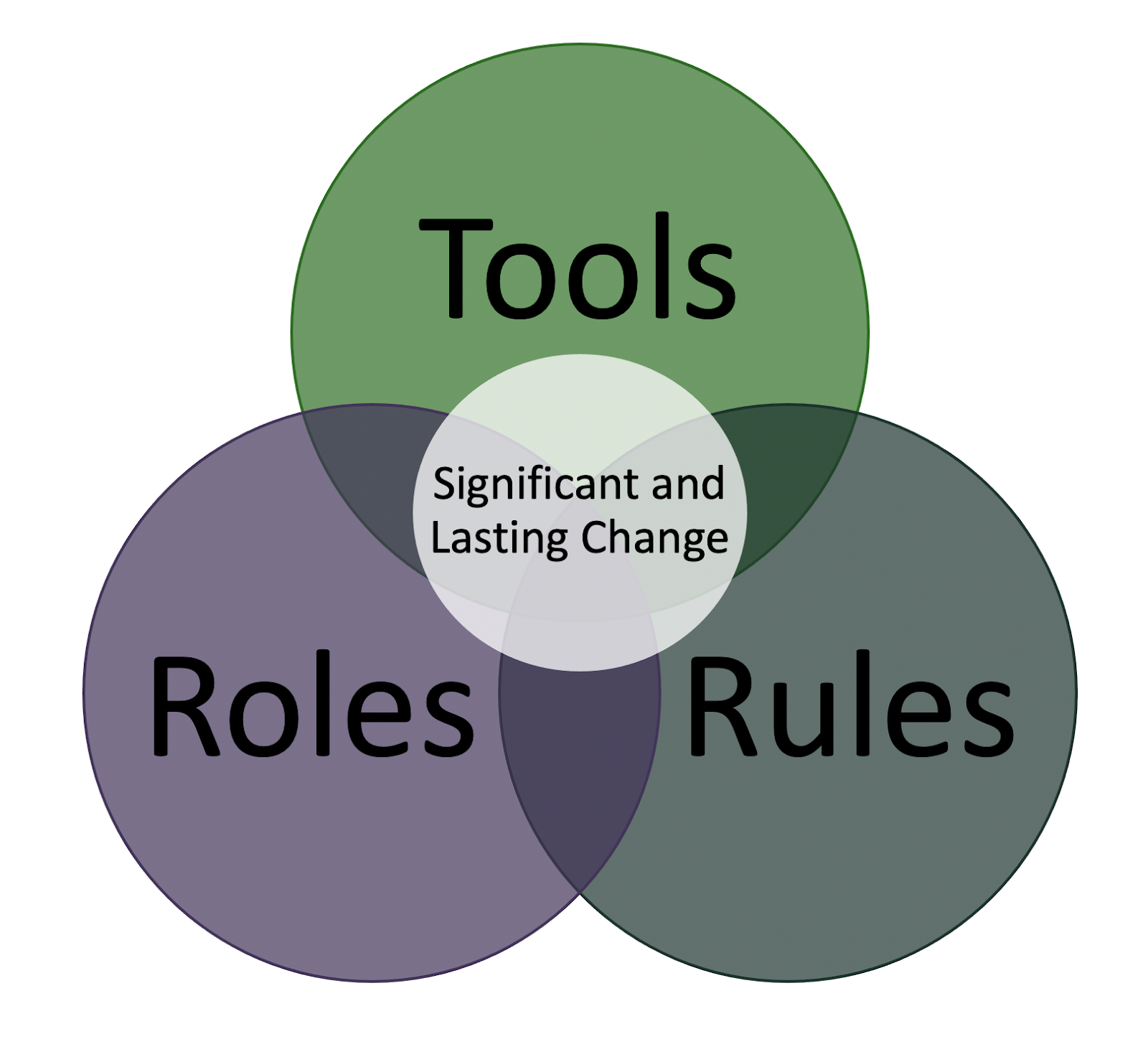 oles, Rules, and Tools” framework and offer guidance in the design, development, implementation, and evaluation of strategies for achieving individual and institutional change.
oles, Rules, and Tools” framework and offer guidance in the design, development, implementation, and evaluation of strategies for achieving individual and institutional change.
Organizational Change Supporting Sustainability - Payne, C., 2015. We provide context for the “Roles, Rules, and Tools” framework and lay out eight social science principles for effectiveness when promoting organizational change.
Research Papers
Identifying Institutional Barriers and Policy Implications for Sustainable Energy Technology Adoption Among Large Organizations in California - Wang, L., Morabito, M., Payne, C., and Robinson, G. Energy Policy 146 (2020) 111768. doi:10.1016/j.enpol.2020.111768 In this exploratory study, we sought to better understand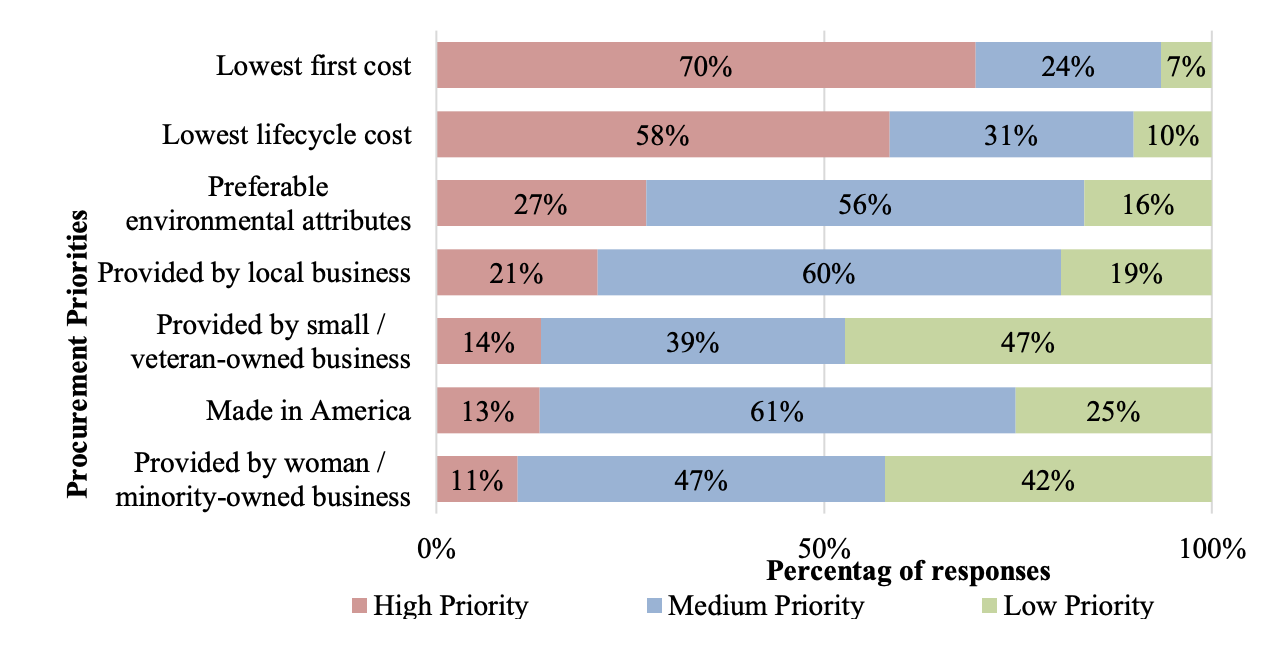 how large organizations purchase sustainable energy technologies and what challenges they confront. We surveyed staff involved in procurement to rank the priority of product attributes considered during procurement. The responses suggest that roughly one in four procurement officials at large organizations see environmental attributes as a high priority, a significantly lower ranking than cost considerations and similar in priority to giving preference to local suppliers.
how large organizations purchase sustainable energy technologies and what challenges they confront. We surveyed staff involved in procurement to rank the priority of product attributes considered during procurement. The responses suggest that roughly one in four procurement officials at large organizations see environmental attributes as a high priority, a significantly lower ranking than cost considerations and similar in priority to giving preference to local suppliers.
Messaging for Impact: Behavioral Science-Based Communication Strategies to Advance Energy Efficiency - Chalasani, S., Johnson, C., Morabito, M., Newkirk, A., Wang, L., Hoffman, I., & Payne, C. ACEEE 2020 Summer Study on Energy Efficiency in Buildings. 2020. In this behavioral study, we measure the effectiveness of various communication strategies by measuring responses to different messages in our digital communications.
Contracting for Efficiency: A Best Practices Guide for Energy Efficient Product Procurement - Bunch, S. & Payne, C. Federal Energy Management Program Office, 2017. This guide outlines best practices for procuring energy efficient products.

Evidence-Based Background Material Underlying Guidance for Federal Agencies in Implementing Strategic Sustainability Performance Plans Implementing Sustainability: The Institutional-Behavioral Dimension - Malone, E., Sanquist, T., Wolfe, A., Diamond, R., Payne, C. & Dion, J. Oakridge National Laboratory, 2011. We lay out the conceptual framework behind energy-saving strategies in federal agencies and beyond. This guide includes the foundation for the “Roles, Rules, and Tools” framework and the eight social science principles for institutional change.
Case Studies
Our group has worked closely with a number of federal entities on achieving better energy performance through organizational change. Our partnerships with the Navy Region Southwest Metro San Diego Area and the U.S. Postal Service bolstered communications among their energy staff and establishing strong leadership support for energy savings.
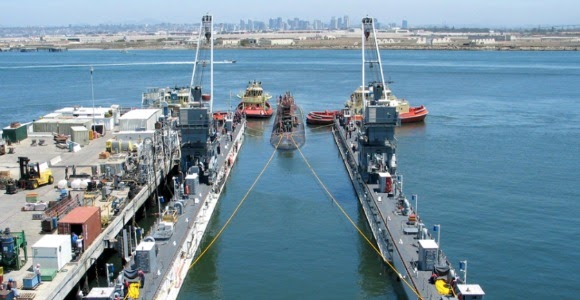
Other studies concerning institutional change and better energy performance include:
U.S. Fish & Wildlife Service: Connecting Sustainability to the Agency’s Mission
IBM: Driving Operational Changes Through an Energy Monitoring System
Department of Energy: Enabling Sustainable Acquisition by Improving Procurement Systems
See the FEMP website for more case studies.
